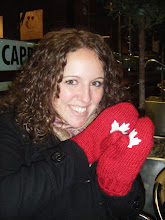Aaaah I can't believe January is over!! Only one more week until half-term break - woohoo! Well deserved I think :)
The title of my blog is actually a quote by Socrates, the founder of Western Philosophy, that says in full: "I cannot teach anybody anything. I can only make them think." He believed that asking a series of questions (the Socratic Method) was the best way for his students to learn and this is actually the basis of our scientific method today, that we always begin with an hypothesis. I love the quote because I think it sums up the way I feel about education. The best we can ask for really, is that our students will 'think' on their own. The purpose of the teacher is to eventually enable the students to get along without the teacher. Consider anything in your life about which you might be an 'expert' - sports facts, a musical instrument, a crafty hobbie. All of the things which humans do well are those which we sought out on our own; the things which we found interesting and wanted to know more about. Unless students take an interest in what they learn, some of them may be able to regurgitate it on a test, but they won't remember it or pursue it - the information is stagnate. The ideas that we give our students should be as such that once they have a taste and swish it around a little bit they will want more!
Obviously this is something that will be very important in my own classroom, but as a supply I am mostly just doing what I'm told, trying desperately to make it through the day without any of the students killing each other (quite literally). But I realized the other day that one of the nifty tricks I use to make 30 students sit in absolute silence is in fact an example of this. It's pretty fun (and you will probably go try it yourself when you're done reading!)
Over the Christmas break I read a really interesting article about how our brains measure the passing of time. Generally since our understanding of time is just a psychological construct, we can feel like it is going way faster or slower than it actually is depending on what we're doing. We measure time in blocks of events and how far apart they seem. The article told the story of this researcher who locked himself away from any natural light for a period of time that was unknown to him.. when his team brought him out after about 2 months and asked him to estimate the date he believed it was a whole month earlier than what it really was!
The point is something very scientific I'm sure, but for me it just means something really cool to share with the kids. I actually didn't do it on purpose, but during one of my first days back teaching this term I had the kids sitting on the carpet ready to go home really early - we'd read two books and they were starting to fidget. I knew I had to tell them something interesting so I quickly told them that story, then asked them what things made time seem faster or slower. They were SO interested! It was the only time all day that I had all 30 of them hanging on my every word. We decided to do our own experiment: everyone closed their eyes and from the time I said go tried to measure the passing of one minute, when they thought one minute had gone by they kept their eyes closed and put their hand up. Seems simple right? They went absolutely silent, I swear some of them didn't even breathe. I watched the clock and it's hilarious to see some of them shoot their hand up in the air with absolute certainty after only about 25 seconds.. and others who sit with their eyes closed, fully concentrating well into the second minute. Go ahead, I know you want to try it! Our brains play tricks on us - and we love it!
I'm not sure what point I'm trying to make by doing it everyday with all the different classes (I have noticed not surprisingly, that the older students have a much better grasp of time) but I do know this: they probably won't remember what I taught them in Math that day, or even what book we read in Literacy. But I guarantee you that most of them leave school and tell someone about that experiment, or try it at home with their parents. They all leave with this weird look on their faces that kids get when they're really thinking about something... it made them question something, take something new that they had never thought of before and smash two neurons in their brains together (or however it happens when we encounter new ideas haha). The point is we can't TEACH anybody anything - you can't force feed ideas in a valuable way - but when we make them THINK? I love it!!
Sunday, 7 February 2010
Subscribe to:
Comments (Atom)
